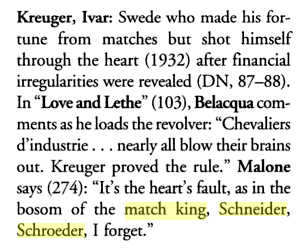Zweig's Impression of Rilke in Paris
From The World of Yesterday : There were only a very few things around him, but flowers always shone in a vase or bowl, perhaps the gift of women, perhaps tenderly brought home by himself. Books gleamed from the walls, beautifully bound or carefully jacketed in paper, for he liked books as he liked dumb animals. Pencils and pens lay on the desk in a straight line, and clean sheets of paper perfectly straightened; a Russian icon and Catholic crucifix, which, I believe, accompanied him on all his travels, gave his working cell a slightly religious character, although his religiousness was not connected with any specific dogma. One felt that everything had been carefully chosen and as carefully preserved.


